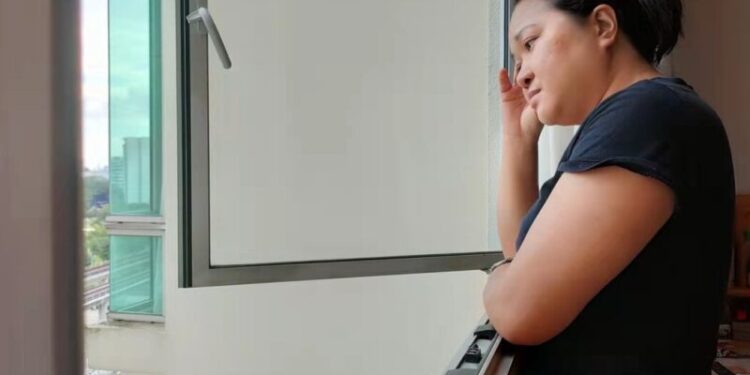This piece is one of 10 winners of our 2022 Profile Contest. You can find more here. Yueyang Ge, the author, is 16 and goes to UWC South East Asia, Dover Campus, in Singapore.
Fighting Against the Wind
By Yueyang Ge
Ynnel Villarias left her hometown the day her youngest daughter turned 6.
“I had to explain to her, again and again, that this is for her future. Our future. Mama is leaving to earn money so we can pay for college and build our own little house,” she said. “In front of the house, we will plant so many orchids. As many as we like.”
Seven years later, Ms. Villarias would recall this dream, which she painted for her three daughters as much as for herself. She would remember the night she landed in Singapore and became a migrant domestic worker. Recollect squeezing out every last bit of toothpaste and scrimping for seven years. The remittances she sent. The pictures of her dream house materializing brick by brick.
Ms. Villarias recalled all of this when Typhoon Rai hit her hometown in the Philippines and swept everything away. This interview has been edited and condensed.
What was your initial reaction when you heard about the typhoon situation in your hometown?
Around 9 p.m. on Dec. 16, I got an SMS message from my eldest daughter: “Mama, the typhoon hit our town. We are leaving to take refuge in our uncle’s house.”
Immediately I was struck with flashbacks of the night I first experienced a Category 3 typhoon. My younger sister and I were walking to my aunt’s house for shelter when a tall mango tree crashed to the ground right behind us — less than five steps away. I felt the water splat on my back. We could have died.
I was only 13 back then. So is my youngest daughter. What if the same thing happens to her? To my other two daughters? Would they be quick enough to evade a falling tree, when electricity is out and their surroundings are pitch-dark?
But no one could tell me what happened. For the next 48 hours, signals were completely cut off.
What emotional challenges did you encounter when you lost contact with your family?
I never felt more anxious. At night I stayed awake and prayed, God, please protect us. Every time I turned on my phone, I said to myself, “Maybe this time.” Maybe, just for once, one of my daughters would be online. “Please, let me talk to them.” But no. Nothing for 48 hours.
How did you cope?
I knew I needed to keep working — to fight. While I remained stuck in Singapore due to Covid, it was the only thing I could do for my family. It’s difficult for me as a mother because when my children needed me the most, I was taking care of others’ children. I was preparing breakfast for my employer’s children, cleaning their bedrooms and sending them to school …
My friends (also migrant domestic workers in Singapore) helped me cope with my anxiety as well. Every now and then, they messaged me and asked, “Are you OK?” I always replied, “Yes, I’m OK. Still fighting.” One of my friends said to me, “You take it positive. You fight. I am here as your sister to help you.”
How has this typhoon affected your family and other people in your town?
When my eldest daughter woke up on Dec. 18, she saw that every house in our town had been flattened to the ground. Fishing boats were wrecked into pieces, and everywhere lay corpses of pigs and cows — the livelihood of my town got destroyed. Nothing was left of my house. My sister’s small shop was gone. But I really thank God that everyone in my family is safe. The house can be rebuilt, but if my loved ones were gone, they would never come back again. I felt lost because it was a lot of money I spent on building the house, but I can start again.
What’s next for you? Any lessons to pass on?
I will keep working in Singapore until all my daughters enter college and until our house is rebuilt. All trials in life are like a typhoon — a violent storm which uproots all that you have. But you never let the wind destroy you. You fight and fight against it until you become strong. I am still fighting.



















